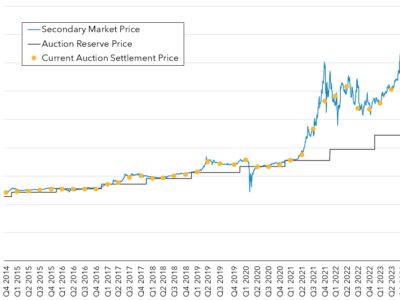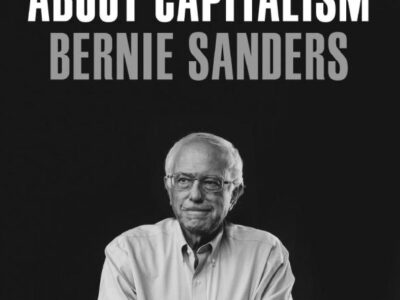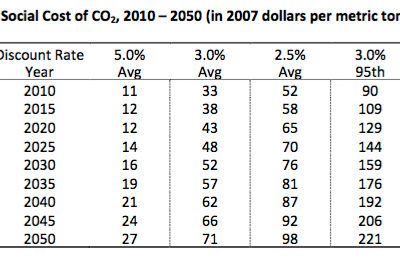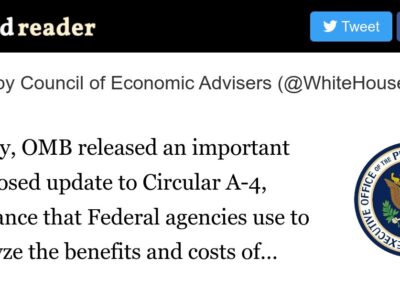environmental economics
Does the Law Require Cost-Benefit Analysis?
According to the D.C. Circuit, the answer is no.
Putting aside the particulars of the case, it seems wrong to apply the same standard (monetized cost-benefit analysis) to every provision in environmental law. These provisions have different language, reflecting differences in congressional priorities. Some provisions, for instance, may be designed push industry to find innovative solutions; others may reflect Congress’s value judgments or a desire to limit EPA’s discretion. We shouldn’t assume that the myriad differences in statutory language are irrelevant and that Congress wanted agencies to adopt the same method of making decisions in every case.
CONTINUE READINGTrump Shoves Economic Analysis and Science to the Curb
The MAGA agenda takes precedence over data and analysis.
If you were looking for data-driven regulatory policy, you’re not going to find it in this Administration. On the contrary, Trump has marginalized economic analysis and wants to bulldoze environmental science. Thus, we are likely to get policies that are bad for the environment without being cost-justified, while ignoring policies who environmental benefits outweigh economic costs.
CONTINUE READINGTalking Climate Policy with an Energy Economist
An interview with leading energy expert Catherine Wolfram
Catherine Wolfram, a leading energy economist who has researched the impact of the Inflation Reduction Act, shares her views of the impact of the IRA, its likely fate, and the energy policies of the incoming Trump Administration. Wolfram served as the Deputy Assistant Secretary for Climate and Energy Economics at the US Treasury in 2021-2022
CONTINUE READINGThe Environmental Gifts of the Magi
Clean air. Clean water. We receive these public goods every day without payment, as gifts from everyone to all of us.
One of the Christmas classics is the Jimmy Stewart movie, It’s a Wonderful Life. Stewart’s character is feeling suicidal, until he learns how much he has unknowingly helped others and how grateful they are. It’s heartwarming if also very corny. There’s a flip side to that story: the need to remember how much others have contributed …
Continue reading “The Environmental Gifts of the Magi”
CONTINUE READINGFive Myths and Half-Truths About California Cap and Trade
California has spent years fine-tuning its trading system, with results that aren’t always easy to gauge.
A key part of California’s climate policy has always been its cap and trade system. Because the regulations aren’t very transparent, there have been a lot of misconceptions about the system. I’ve been digging into the rules, the explanatory website set up by the California Air Resources Board (CARB), and secondary sources to try to …
Continue reading “Five Myths and Half-Truths About California Cap and Trade”
CONTINUE READINGIs Capitalism to Blame?
Some people think we need to abolish capitalism to save the environment.
Bernie Sanders has a book called It’s OK to be Angry at Capitalism. There are certainly a lot of people across the political spectrum who feel that way. Capitalism is blamed for environmental destruction by many of the more radical segments of the Left. That’s not too surprising given the historic connection between the more …
Continue reading “Is Capitalism to Blame?”
CONTINUE READINGThe IRA’s Implicit Cost of Carbon
Here’s a simple way to think about a hard problem.
The social cost of carbon is important in many regulatory decisions made by the executive branch. It basically measures the benefit of cutting one ton of carbon emissions. Figuring out the cost of carbon based on an analysis of climate impacts is very tricky. However, there’s another way to think about the problem: We might …
Continue reading “The IRA’s Implicit Cost of Carbon”
CONTINUE READINGThe Philanthropy Gap
Spending relating to climate change is far too low given the urgency of the situation.
Larry Kramer, who heads the Hewlett Foundation, pointed out in a speech five years ago that climate change accounted for less than 2% of foundation spending. He called upon “anyone who cares about our children’s and grandchildren’s futures to step forward.” The situation has gotten only a bit better since 2017. In 2020, according to a McKinsey …
Continue reading “The Philanthropy Gap”
CONTINUE READINGThe Energy Transition and the Working Class
Is Biden right? Can we attack climate change while uplifting the lives of workers?
In most of the world, May 1 is International Worker’s Day. It celebrates the collective struggle of workers for better wages and working conditions. That made me start thinking about the efforts that have been made to unite climate action with the interests of workers. That has been a particular emphasis of the Biden Administration …
Continue reading “The Energy Transition and the Working Class”
CONTINUE READINGRevamping Cost-Benefit Analysis
Proposed changes will make CBA more climate friendly.
Last week, the Biden White House released proposed changes in the way the government does cost-benefit analysis. CBA has been a key part of rule making for forty years. The proposal is very technical and low-key, but the upshot will be that efforts to reduce carbon emissions will get a leg up. In particular, the …
Continue reading “Revamping Cost-Benefit Analysis”
CONTINUE READING













